
To avoid foundation cracks, compact the soil properly before building, clear debris, and conduct soil tests. Guarantee efficient drainage by keeping gutters clean, grading soil away from the foundation, and using French drains. Regular maintenance and inspections help catch issues early and preserve your property’s value. Control moisture levels consistently and consider root barriers to protect from tree roots. Maintain proper grading, check plumbing systems, address cracks promptly, assure proper ventilation, and seek professional help for tailored repair plans. These steps will help you safeguard your foundation and property’s integrity.
TLDR:
- Compact soil properly before construction to prevent settlement.
- Ensure effective drainage systems to avoid water accumulation.
- Conduct regular maintenance and inspections for early issue detection.
- Control moisture levels consistently to prevent structural damage.
- Install root barriers to protect against tree root damage.
Proper Soil Compaction
To guarantee stable foundations, compact the soil thoroughly before construction begins. This step is essential in preventing future foundation cracks. When the soil isn’t properly compacted, it can lead to settlement issues over time, causing stress on the foundation and ultimately resulting in cracks. By compacting the soil adequately, you confirm that it can support the weight of the structure without shifting or settling unevenly.
Before compacting the soil, it’s important to remove any organic materials, debris, or large rocks that may interfere with the compaction process. These obstacles can create voids beneath the foundation, making it more vulnerable to cracks. Once the soil is cleared, use compaction machinery to densely pack the soil layers. This compaction process reduces the soil’s ability to settle, providing a stable base for the foundation.
Additionally, it’s crucial to conduct soil tests to determine the soil’s composition and density. Different types of soil require varying levels of compaction to achieve the desired stability. By understanding the soil conditions, you can adjust the compaction process accordingly to ensure the best results.
Effective Drainage Systems
Establish proper drainage systems to prevent water accumulation around the foundation, which can lead to structural damage such as cracks. Effective drainage is important in ensuring that excess water is directed away from the foundation of your home. Poor drainage can result in water pooling around the foundation, causing the soil to expand and exert pressure on the walls, leading to cracks over time.
One way to improve drainage is by making sure that your gutters and downspouts are clear of debris and are directing water at least 5-10 feet away from the foundation. Reflect on adding extensions to your downspouts if needed. Additionally, grading the soil away from the foundation can help prevent water from seeping into the ground around your home.
French drains are another efficient solution to ponder. These trenches filled with gravel or rock can help redirect water away from the foundation. Installing a sump pump can also be beneficial in areas where water accumulation is a recurring issue.
Regularly inspect your drainage systems to ensure they’re functioning correctly. Address any clogs or damages promptly to avoid water buildup near the foundation. By implementing these drainage solutions, you can reduce the risk of foundation cracks caused by water damage.
Regular Foundation Inspections
Consider scheduling regular foundation inspections to proactively identify and address any potential issues before they escalate. By staying vigilant and conducting routine checks, you can prevent minor concerns from turning into costly foundation cracks. Here are some compelling reasons why regular inspections are essential:
- Peace of Mind: Knowing that your foundation is being regularly inspected can provide you with peace of mind. You can rest assured that any problems will be caught early, preventing significant damage to your home.
- Cost-Effective: Detecting and fixing small issues during routine inspections is much more cost-effective than dealing with extensive foundation repairs later on. Investing in regular inspections can save you a significant amount of money in the long run.
- Safety: Ensuring the structural integrity of your foundation through regular inspections is vital for the safety of your household. Discovering and addressing issues promptly can help prevent accidents or structural failures.
- Property Value: Maintaining a solid foundation through regular inspections can help preserve and even increase the value of your property. A well-maintained foundation is a significant selling point and can attract potential buyers if you decide to sell your home in the future.
Maintain Consistent Moisture Levels
Maintaining consistent moisture levels around your foundation is crucial for preventing potential cracks and structural damage. Fluctuating moisture levels can cause the soil beneath your foundation to expand and contract, putting pressure on the foundation walls and leading to cracks over time. To avoid this, make sure you have proper drainage systems in place to redirect water away from the foundation. Guarantee that gutters and downspouts are clear of debris and functioning correctly to prevent water from pooling near the foundation.
Additionally, consider installing a soaker hose around the perimeter of your foundation to keep the soil consistently moist, especially during dry periods. This can help prevent the soil from shrinking and pulling away from the foundation, which can also lead to cracks. Be mindful of overwatering, as excessive moisture can also cause issues by oversaturating the soil and putting pressure on the foundation walls.
Regularly inspect the areas around your foundation for signs of moisture buildup or pooling water. Address any issues promptly to maintain a healthy moisture balance. By taking these steps to keep moisture levels consistent around your foundation, you can greatly reduce the risk of developing cracks and other structural problems in the future.
Install Root Barriers
To prevent potential foundation damage caused by tree roots, installing root barriers is a recommended solution. Tree roots can extend far beyond the canopy of the tree and have the potential to cause significant damage to the foundation of your home. By installing root barriers, you can proactively prevent these issues and protect your property.
Here are four reasons why installing root barriers is important:
- Prevent Costly Repairs: Root barriers act as a barrier between tree roots and your home’s foundation, reducing the risk of roots causing cracks and structural damage. By investing in root barriers, you can save yourself from costly repairs in the future.
- Preserve Landscape Harmony: While trees add beauty to your landscape, their roots can disrupt the harmony by damaging pathways, driveways, and foundations. Root barriers help maintain this harmony by containing the roots within designated areas.
- Protect Structural Integrity: The stability of your home relies on a strong foundation. Root barriers play a significant role in preserving the structural integrity of your property by preventing tree roots from encroaching on the foundation and causing issues.
- Peace of Mind: Knowing that you have taken proactive measures to protect your home from potential foundation damage can provide you with peace of mind. Installing root barriers is a simple yet effective way to safeguard your property.
Ensure Proper Grading
To ensure the stability and longevity of your home’s foundation, a key aspect to focus on is maintaining proper grading around the property. Proper grading involves ensuring that the ground slopes away from the foundation, allowing water to flow away from the structure instead of pooling around it. This is essential in preventing excess moisture from seeping into the foundation and causing cracks over time.
When the ground around your home isn’t correctly graded, water can accumulate near the foundation, putting pressure on the walls and potentially leading to cracks. To avoid this, regularly inspect the grading around your property. Look for any areas where the ground slopes towards the foundation or where water is pooling after rainfall. These are signs that the grading needs to be adjusted to direct water away from the house.
To improve the grading, you can add soil to create a gentle slope away from the foundation. This will help water naturally drain away from the house. Additionally, consider installing a French drain or gutter system to further redirect water flow and protect your foundation. By maintaining proper grading, you can significantly reduce the risk of foundation cracks caused by water damage.
Monitor Plumbing Systems
Consistently monitoring your plumbing systems is crucial in preventing foundation damage and costly repairs. Plumbing issues such as leaks or bursts can lead to excess moisture around your home’s foundation, causing soil erosion and potential structural damage. To keep your foundation strong and stable, follow these tips:
- Regular Inspections: Make it a practice to inspect your plumbing systems regularly for any signs of leaks, corrosion, or blockages. Early detection can help you address issues before they escalate and impact your foundation.
- Check Water Pressure: Monitor the water pressure in your pipes as high water pressure can put stress on your plumbing system, leading to leaks or bursts. Install a pressure regulator if needed to maintain a safe level of water pressure.
- Maintain Proper Drainage: Guarantee that your gutters, downspouts, and drainage systems are clear of debris and functioning correctly. Proper drainage helps prevent water from pooling near your foundation and causing damage over time.
- Professional Maintenance: Consider hiring a professional plumber to conduct annual maintenance on your plumbing systems. They can identify potential problems, make necessary repairs, and provide valuable advice on how to keep your plumbing in top condition. Regular maintenance can save you money in the long run by preventing costly foundation repairs.
Address Exterior Cracks Promptly
Be proactive in addressing exterior cracks promptly to prevent further damage to your foundation. Exterior cracks in your home’s walls or foundation can lead to serious issues if left unattended. Water intrusion, soil erosion, and structural instability are just a few of the potential consequences of neglected exterior cracks. To safeguard your home, it’s vital to address these cracks as soon as they’re noticed.
One of the first steps in addressing exterior cracks is to identify their cause. Cracks can form due to various reasons, such as changes in temperature, settling of the foundation, or water damage. Once you have pinpointed the root cause, you can take appropriate measures to fix the cracks and prevent their recurrence.
Depending on the severity of the cracks, you may need to consult a professional for repairs. It’s essential to choose a reputable contractor who specializes in foundation repairs to make sure the job is done correctly. Ignoring exterior cracks or attempting to fix them yourself without the necessary expertise can exacerbate the problem and lead to costly repairs down the line.
Implement Proper Ventilation
Proper ventilation plays an essential role in maintaining a healthy environment within your home. Ensuring adequate airflow helps regulate moisture levels, prevent mold growth, and improve indoor air quality.
Here are four vital tips to help you implement proper ventilation and avoid foundation cracks:
- Install Ventilation Fans: Consider installing exhaust fans in high-moisture areas like bathrooms, kitchens, and basements. These fans help remove excess humidity and prevent moisture buildup, reducing the risk of foundation damage.
- Use Air Vents: Make sure air vents in your home aren’t blocked by furniture or other items. Proper air circulation is key to keeping moisture levels in check and preventing dampness that can impact your foundation’s stability.
- Open Windows: Whenever possible, open windows to allow fresh air to circulate throughout your home. This simple step can help reduce humidity levels and promote better ventilation, safeguarding your foundation against cracks.
- Consider a Dehumidifier: In particularly humid climates or during rainy seasons, a dehumidifier can be a valuable tool to control indoor moisture levels. By maintaining the best humidity levels, you can protect your home’s foundation from potential damage caused by excessive dampness.
Seek Professional Foundation Repair
Considering the complexity of foundation issues, seeking professional foundation repair services is vital for addressing potential structural concerns efficiently. When it comes to the integrity of your home’s foundation, it’s essential not to cut corners or attempt a DIY approach. Professional foundation repair specialists possess the knowledge, skills, and tools necessary to accurately assess the situation and provide effective solutions.
By engaging professional services, you can benefit from a thorough inspection of your foundation to identify underlying problems that may not be immediately visible. These experts can pinpoint the root cause of any cracks or shifts, allowing them to devise a tailored repair plan that addresses the specific needs of your foundation.
Moreover, professional foundation repair services offer long-lasting solutions that can prevent future issues from arising. Attempting to patch up cracks or stabilize the foundation without proper expertise can result in temporary fixes that fail to address the underlying issues, potentially leading to more extensive damage down the line.
In addition to their technical expertise, foundation repair professionals are equipped to handle the physical demands of the job safely. Dealing with foundation repairs often involves heavy lifting, working in tight spaces, and using specialized equipment—all of which are best left to those with experience in the field.
Frequently Asked Questions
Can Foundation Cracks Be Caused by Tree Roots Near the Home?
Tree roots near your home can indeed cause foundation cracks. As they grow, roots can exert pressure on the foundation, leading to cracks over time. It’s important to manage tree placement to prevent this issue.
How Can I Tell if My Foundation Cracks Are a Sign of a Serious Problem?
If you notice foundation cracks, monitor their size and progression. Look for signs like doors sticking or uneven floors. Consult a professional if cracks continue to widen or if you see horizontal cracking.
What Are the Potential Consequences of Ignoring Foundation Cracks?
Ignoring foundation cracks can lead to severe structural damage, compromising your home’s stability. Water intrusion, mold growth, and decreased property value are potential consequences. Addressing cracks promptly is essential to prevent costly repairs in the future.
Are There Any DIY Methods for Fixing Minor Foundation Cracks?
To fix minor foundation cracks yourself, start by cleaning the area and using epoxy or polyurethane sealants. Apply the product according to instructions, ensuring a proper seal. Monitor the crack for any changes and address them promptly for effective repair.
How Do I Know if My Foundation Cracks Are Due to Settling or Something More Serious?
To know if your foundation cracks are due to settling or a serious issue, monitor for changes like widening or new cracks, especially near doors and windows. Consult a professional if concerned about structural integrity.
Conclusion
Lifetime Basement Waterproofing has been Atlanta’s premier basement waterproofing company for over 30 years.
As a family-owned and operated company, we specialize in basement waterproofing and provide expert services such as crawlspace encapsulation, exterior foundation waterproofing, foundation crack repair in Canton, GA, and drainage strategy for French drains.
Trust Lifetime Basement Waterproofing for all your wet basement repair needs and ensure the longevity of your home’s foundation.
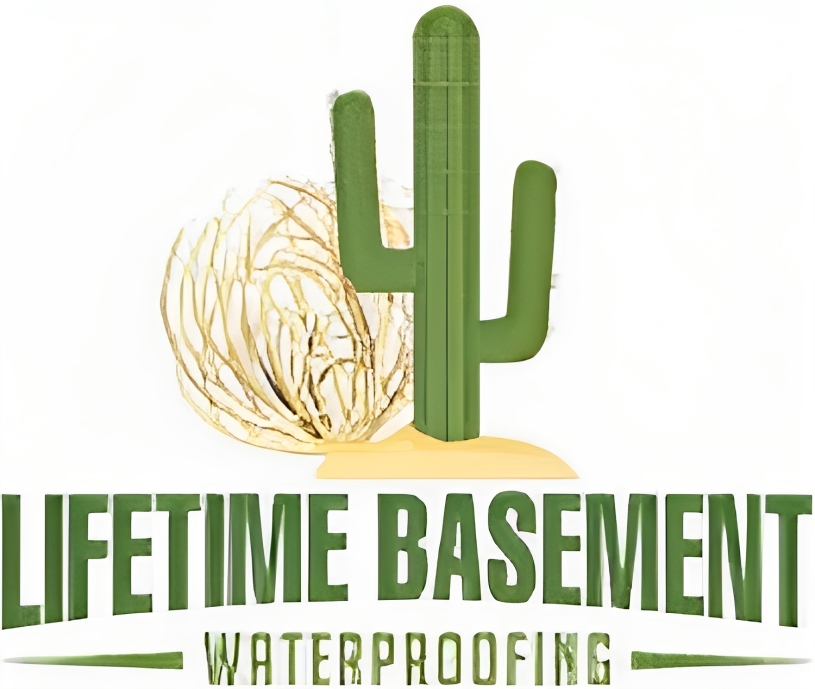
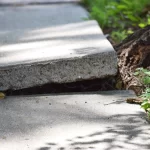

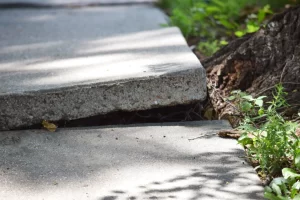
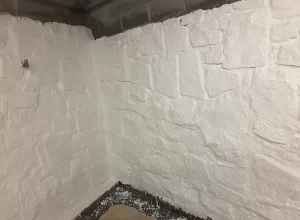
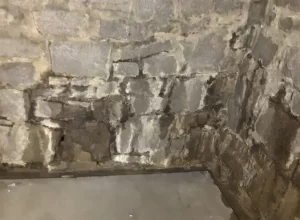
No comment yet, add your voice below!